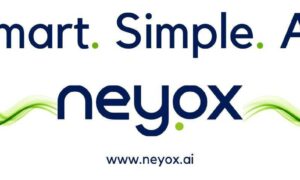Successful companies always have the best business strategies, marketing plans, and customer services. But one thing that stands out the most is that they all hire only the most talented professionals who can develop and execute all these procedures. These companies know that human resources are an essence of their businesses.
However, it is not easy to find a reliable employee these days. According to the latest data, the U.S. unemployment rate is close to the natural minimum at 4.1%. The situation is not much different in other first-world countries, too.
In such circumstances, it is necessary to use the state-of-the-art recruiting methodology to find a suitable candidate for your team. Today, data science represents the most powerful way to improve your human resources. In this article, we will show you 5 compelling reasons why HR should care about big data.
5 Benefits Big Data Bring to HR
Data science automates a lot of recruiting procedures, making the whole process faster and more precise. Alison Robson, an HR Manager at CareersBooster, recently stated: “Big data is not biased, irrational, or intuitive. It is a data-driven methodology which improves HR business in almost all of its aspects.” But in which areas does it make such a huge influence? Let’s check it out here:
Talent Acquisition
Detecting and attracting the best candidates for your team is the first step in recruiting. According to the study, almost a quarter of new hires leave their jobs within 45 days of being recruited, mostly due to poor performance and temperament issues. This happens because traditional HR managers have to analyze each candidate individually, read resumes, and assess their skills.
With big data, you can analyze thousands of resumes almost instantly and draw meaningful conclusions out of it. All you need to do is set the desired indicators of a perfect candidate and the software will do the rest of work for you. After this difficult and time-consuming task is done, you can take over the process and choose a few candidates from the filtered list without being afraid of making a big mistake.
Training
When new employees enter your team, they have to learn many new procedures and company policies. They also need to understand all details of your business to be able to complete their own duties successfully. This is exactly where big data hop in as it can design appropriate employee training programs for each department or even a person separately.
Traditional training sessions are mostly ‘one size fits all’ courses, while data science enables companies to prepare special programs for every single employee. This doesn’t only help new members of your team to learn and adapt faster but also saves you a lot of money since traditional employee training often causes more costs than benefits.
Compensation and Benefits
A satisfied worker is the most efficient worker. For this reason, you need to be very careful when offering new employees a compensation package. It doesn’t only mean that you have to give them fair salaries but also additional benefits whenever necessary. Namely, a research proved that more than 80% of workers would prefer new or additional benefits to a pay increase.
These benefits could involve better life/work balance, health insurance or more free days. Data science can analyze all these elements and calculate precisely which ones proved to be most important for each position within your team. You can use such information to offer your own employees the best compensation packages, giving them the motive to stay in your company for a long time.
Engagement and Performance
Employee engagement and performance represent the cornerstone of profitable entrepreneurship. If you want to make a sustainable business, you need to keep these aspects of work close to the maximum, which is not something that traditional HR executives were able to handle perfectly. Today, big data make things a lot easier in that regard.
With its ability to detect and calculate dozens of different variables, data science can give you an accurate analysis of each member of the team. It monitors every KPI and gives you an overview of employee productivity and engagement, emphasizing the ones who don’t fulfill the planned objectives. This way, you can address all issues and improve the productivity of your employees.
Retention Rate
Even if you are satisfied with the performance of your employees, it doesn’t mean that they feel the same kind of satisfaction. On the contrary, it seems like more than half of all workers are not happy in their current roles and they would leave as soon as they get a better job opportunity.
Big data helps you to explore potential reasons for leaving – the feeling of professional underachievement, low salaries, poor interpersonal relations within the team, etc. Bearing these factors in mind, you can react promptly and prevent the best employees from looking for some other career opportunity.
Conclusion
Big data made a huge influence on HR management in the last few years. It made each aspect of the business a lot more efficient – from talent acquisition and training to engagement and retention. In this article, we showed you 5 reasons why HR should pay attention to big data. We hope you liked our explanations but feel free to make a comment if you need additional information about this topic.

































